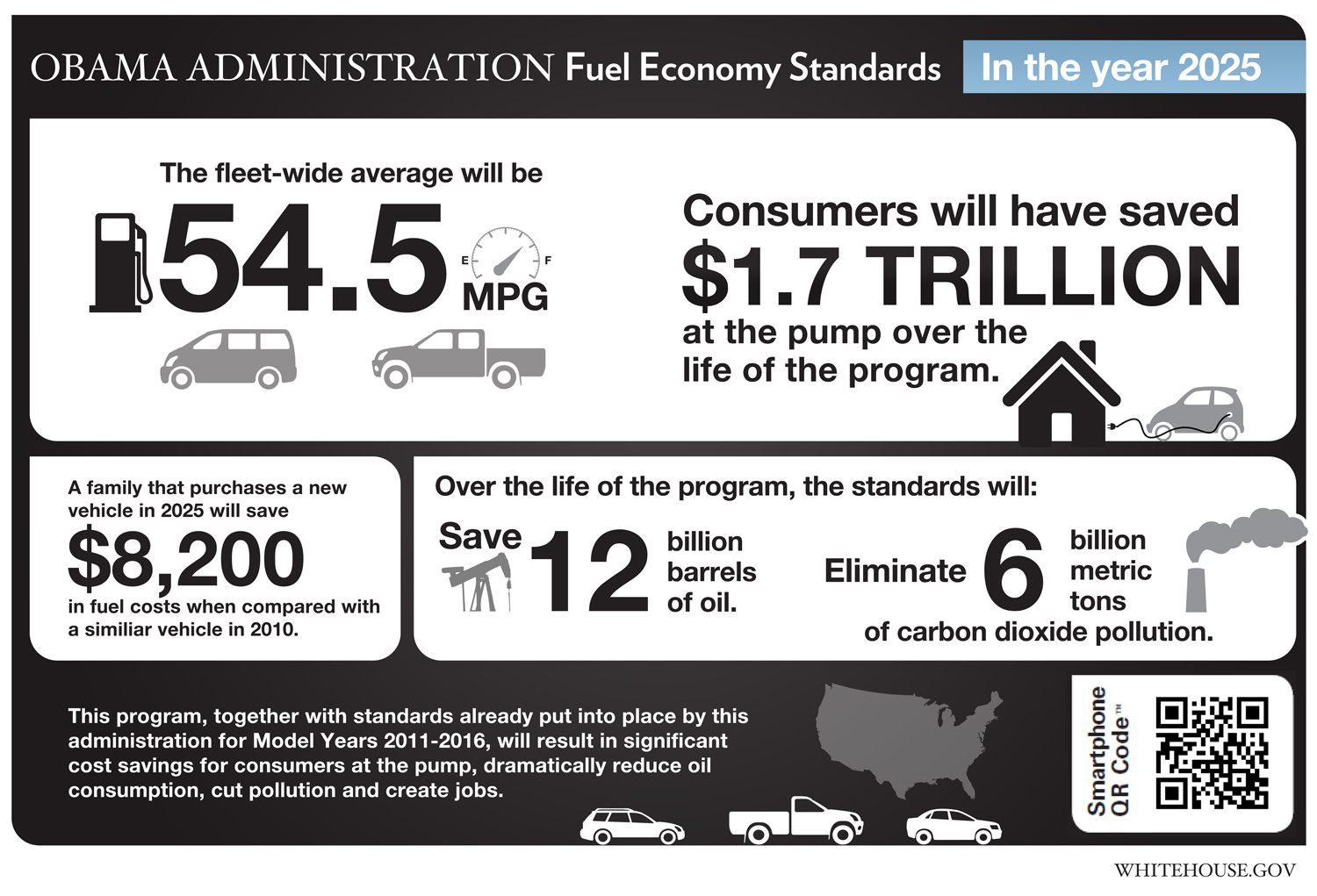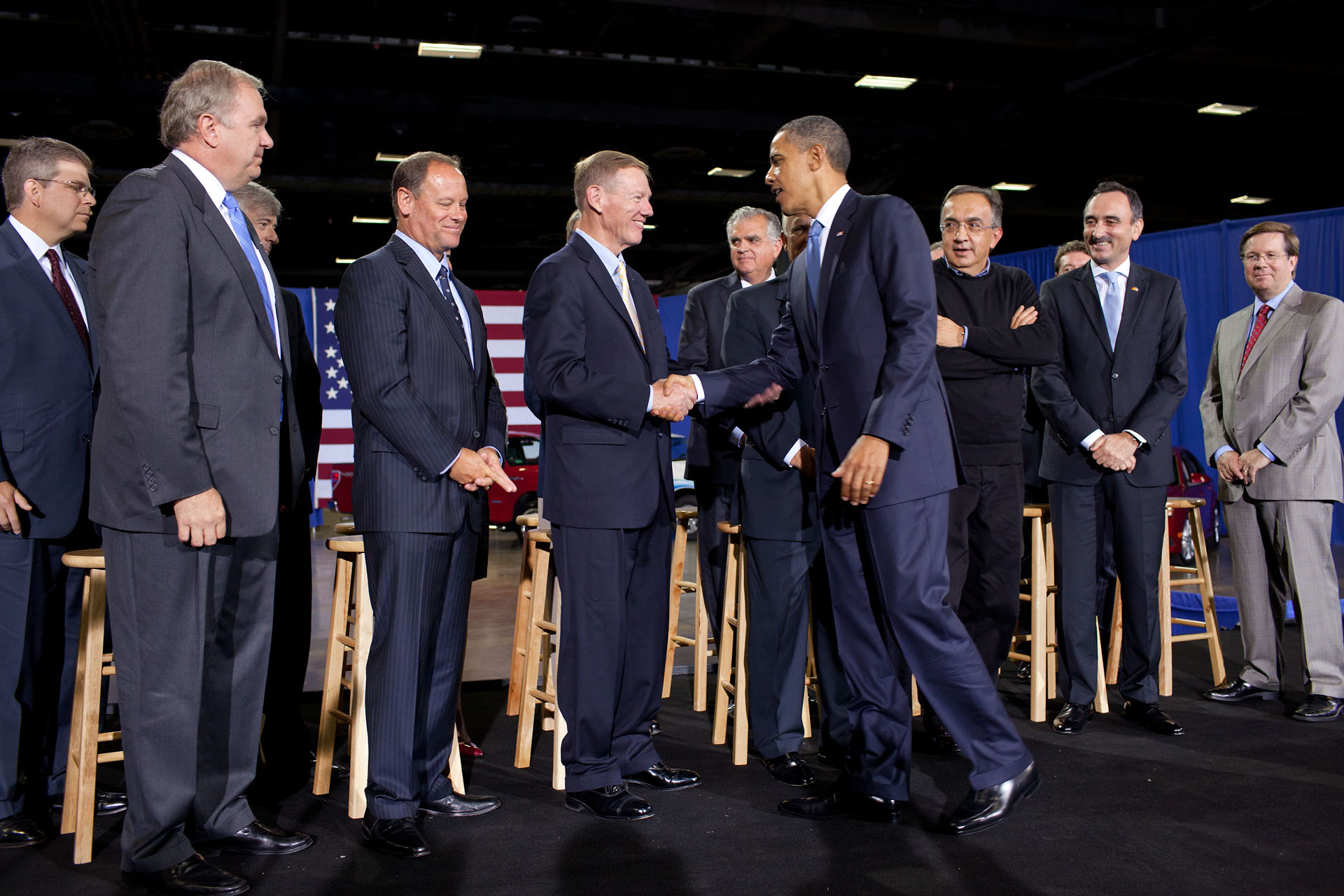
President Obama today announced the next phase in the Administration’s program to increase fuel efficiency and reduce greenhouse gas pollution for all new cars and trucks sold in the United States. These new standards will cover cars and light trucks for Model Years 2017-2025, requiring performance equivalent to 54.5 mpg in 2025 while reducing greenhouse gas emissions to 163 grams per mile.
Taken together, the standards established under this Administration span Model Years 2011 to 2025. They will save consumers money, reduce our dependence on oil, and protect the environment:
Savings at the pump
- Thanks to the standards, consumers will save an estimated $1.7 trillion dollars in real fuel costs over the life of their vehicles.
- By 2025, the standards are projected to save families an estimated $8,200 in fuel savings over the lifetime of a new vehicle, relative to the Model Year 2010 standard.
Cutting oil dependence
- As our cars and trucks become more fuel efficient, we will need to use less oil. Over the life of the program, the standards will save an estimated 12 billion barrels of oil – nearly four years’ worth of consumption by light-duty vehicles at current levels.
- By 2025, the standards for MY 2011-2025 will reduce oil consumption by an estimated 2.2 million barrels a day – more than we import from any country other than Canada. As the vehicle fleet turns over and older vehicles are replaced with more efficient ones, the oil savings from these standards will grow, ultimately reaching over 4 million barrels a day – nearly as much as we import from all OPEC countries combined.
- The MY 2011-2025 standards are critical to meeting President Obama’s goal of cutting oil imports by one-third by 2025, contributing over half the savings needed to meet the President’s goal.
Protecting human health and the environment
- The standards will reduce carbon dioxide pollution by over 6 billion metric tons – equivalent to the emissions from the United States last year, or what the Amazon rainforest absorbs in three years.
- The standards will protect public health by cutting air pollutants such as air toxics, smog, and soot.
Developed in partnership with auto manufacturers, the State of California, the United Auto Workers (UAW), national environmental organizations and other stakeholders, these achievable and cost effective standards will bring the nation over halfway to the President’s goal of reducing oil imports by a third by 2025. These standards thus represent a key component of the comprehensive energy policy that this Administration has pursued since day one, which aims to increase safe and responsible energy production at home while reducing our overall dependence on oil with cleaner alternative fuels and greater efficiency.
Print the new fuel standards graphic
Download the charts from the report:
Oil Consumption
MPG Standards
Oil Imports
Household Spending
Fuel Savings
UPDATE: The President has also announced new fuel efficiency standards for heavy trucks and buses.





